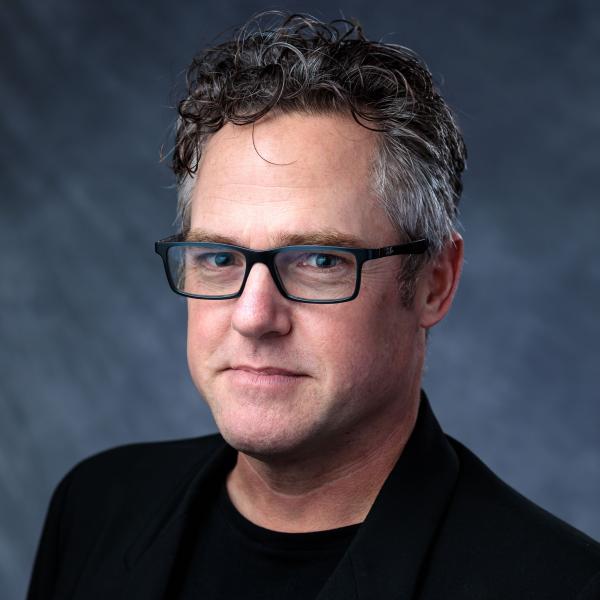
Dr. Jason Riggle is an Associate Professor at the University of Chicago, the director of the Chicago Language Modeling Lab, and the Resident Dean of The Max Palevsky Residential Commons. His main research areas are phonology, learnability, and computational linguistics. Much of his research focuses on the ways that specific models of grammar, learning, and communication interact to make predictions about linguistic typology (i.e., the range of attested linguistic phenomena in the world's languages) with special emphasis on the frequencies with which various articulations and patterns are observed within and across languages, dialects, and contexts.
Recent Publications
Books:
- Goldsmith, John, Jason Riggle, & Alan Yu, eds. (2011) The Handbook of Phonological Theory, Second Edition. Blackwell
Selected Articles/Chapters:
- Bane, Max & Jason Riggle (2012) "Consequences of Candidate Omission." Linguistic Inquiry 43(4): 695–706
- Goldsmith, John & Jason Riggle (2012) "Information Theoretic Approaches to Phonological Structure: The Case of Finnish Vowel Harmony." Natural Language and Linguistic Theory 30: 859–896
- Heinz, Jeffrey & Jason Riggle (2011) "Learnability in Phonology." In The Blackwell Companion to Phonology, Marc van Oostendorp, Colin J. Ewen, Elizabeth Hume, & Keren Rice, eds., Malden, MA & Oxford: Wiley-Blackwell: Blackwell, Volume 1, Chapter 3
- Heinz, Jeffrey, Gregory Kobele, & Jason Riggle (2009) "Evaluating the complexity of Opti- mality Theory." Linguistic Inquiry 40: 277–288, ROA 968-0508
- Riggle, Jason (2009a) "The Complexity of Ranking Hypotheses in Optimality Theory." Com- putational Linguistics 35(1): 47–59
- Riggle, Jason (2006a) "Infixing Reduplication in Pima and its Theoretical Consequences." Natural Language and Linguistic Theory 24(3): 857–891
2020-2021 Course Offerings
Introduction to Phonetics and Phonology (LING 20101) - Autumn 2020
This course is an introduction to the study of speech sounds and their patterning in the world's languages. The first half of the course focuses on how speech sounds are described with respect to their articulatory, acoustic, and perceptual structures. There are lab exercises both in phonetic transcription and in the acoustic analysis of speech sounds. The second half focuses on fundamental notions that have always been central to phonological analysis and that transcend differences between theoretical approaches: contrast, neutralization, natural classes, distinctive features, and basic phonological processes (e.g., assimilation).
The Language of Deception and Humor (LING 23920) - Winter 2021
In this course we will examine the language of deception and humor from a variety of perspectives: historical, developmental, neurological, and cross-cultural and in a variety of contexts: fiction, advertising, politics, courtship, and everyday conversation. We will focus on the (linguistic) knowledge and skills that underlie the use of humor and deception and on what sorts of things they are used to communicate.
Seminar in Phonology: Learning Phonological Patterns (LING 22460/52400) - Spring 2021
In this course we will study mathematical frameworks of learning and how they have been applied to the learning and learnability of phonological patterns.
2019-2020 Course Offerings
The Language of Deception and Humor (LING 23920) - Autumn 2019
In this course we will examine the language of deception and humor from a variety of perspectives: historical, developmental, neurological, and cross-cultural and in a variety of contexts: fiction, advertising, politics, courtship, and everyday conversation. We will focus on the (linguistic) knowledge and skills that underlie the use of humor and deception and on what sorts of things they are used to communicate.
Introduction to Phonetics and Phonology (LING 20101) - Winter 2020
This course is an introduction to the study of speech sounds and their patterning in the world's languages. The first half of the course focuses on how speech sounds are described with respect to their articulatory, acoustic, and perceptual structures. There are lab exercises both in phonetic transcription and in the acoustic analysis of speech sounds. The second half focuses on fundamental notions that have always been central to phonological analysis and that transcend differences between theoretical approaches: contrast, neutralization, natural classes, distinctive features, and basic phonological processes (e.g., assimilation).
Computational Models in Phonology (LING 22880/32880) - Spring 2020
Course Description: TBD.
